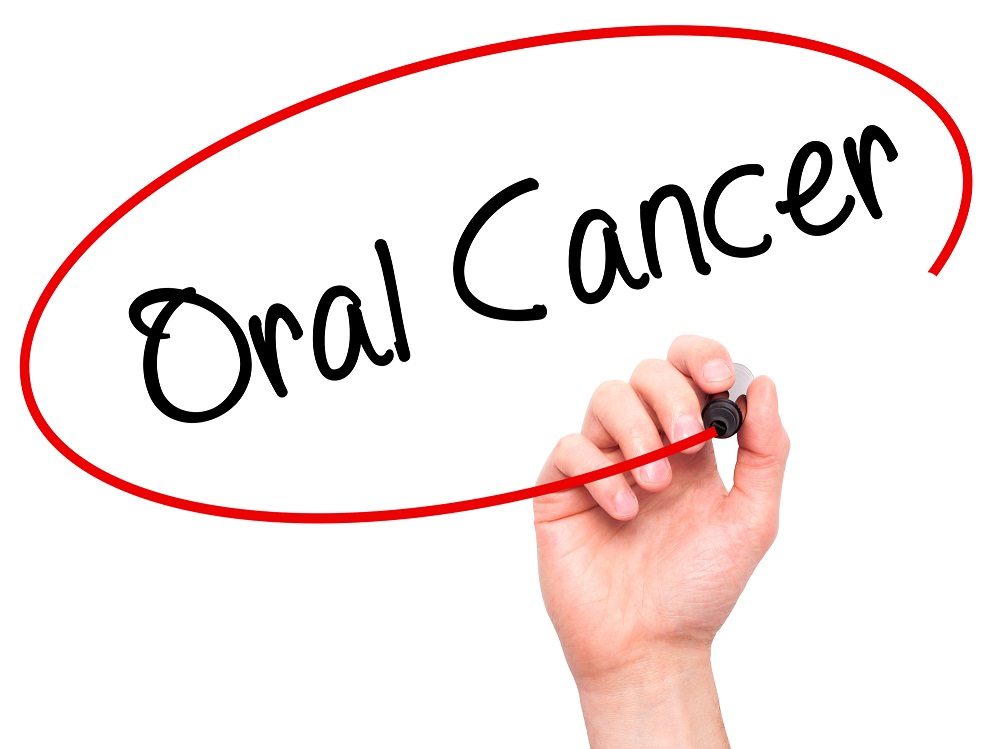 According to the American Academy of Oral Medicine (AAOM), “Oral and oropharyngeal cancer (cancer of the mouth and upper throat) collectively kill nearly one person every hour of every day of the year.” However, mortality rates can be reduced through early detection.
According to the American Academy of Oral Medicine (AAOM), “Oral and oropharyngeal cancer (cancer of the mouth and upper throat) collectively kill nearly one person every hour of every day of the year.” However, mortality rates can be reduced through early detection.
One of the best ways to detect oral cancer at an early stage is by getting regular screenings. Dental associations such as the Academy of General Dentistry, recommend seeing your dentist at least once a year for a thorough examination-especially if you are at risk for developing the disease. You may be at risk if you:
- Drink excessive amounts of alcohol on a regular basis
- Contracted the human papillomavirus (HPV)
- Use tobacco products
- Chew betel quid
- Previously had oral cancer
- Have a weakened immune system
- Have poor oral health
- Have a family history of squamous cell carcinoma (SCC)- the most common type of oral cancer
Those at risk should be mindful of the signs and symptoms of oral cancer which include:
- A change in the way your teeth fit together when you close your mouth
- A white, red or black discoloration of the tissues inside the mouth
- A growth or lump inside the mouth
- Lip sores that do not heal
- Hoarseness or soreness of the throat that do not resolve
- Difficulty swallowing
- Loose teeth
- Mouth pain
- Earaches
It is strongly recommended that you see a dentist if these symptoms persist for more than two weeks.
April is Oral Cancer Awareness Month; during this time the AAOM and other dental health associations across the United States are urging the public to schedule an oral cancer examination. If you are at risk for developing the disease please remember to check for signs and symptoms in between dental visits.
To schedule an appointment with a dentist at Flushing Hospital Medical Center, please call 718-670-5521.
All content of this newsletter is intended for general information purposes only and is not intended or implied to be a substitute for professional medical advice, diagnosis or treatment. Please consult a medical professional before adopting any of the suggestions on this page. You must never disregard professional medical advice or delay seeking medical treatment based upon any content of this newsletter. PROMPTLY CONSULT YOUR PHYSICIAN OR CALL 911 IF YOU BELIEVE YOU HAVE A MEDICAL EMERGENCY.
